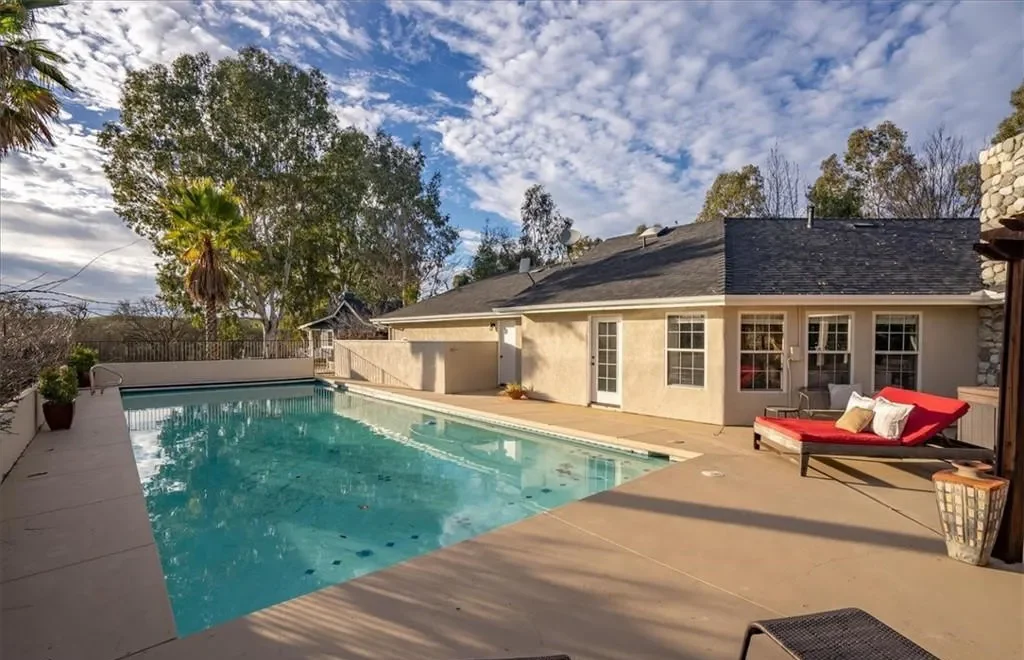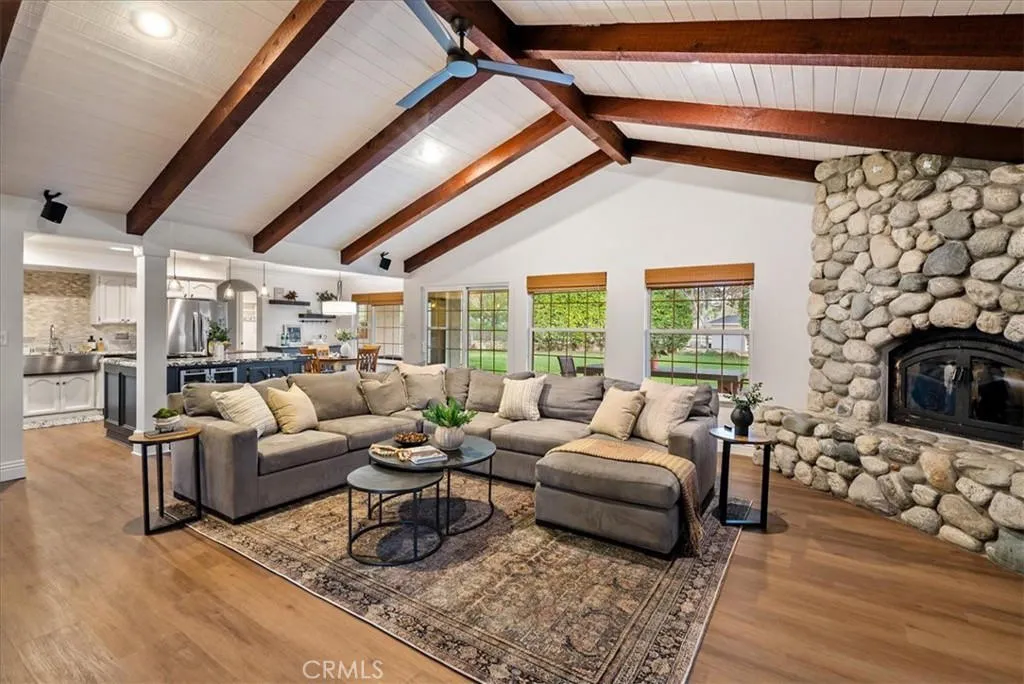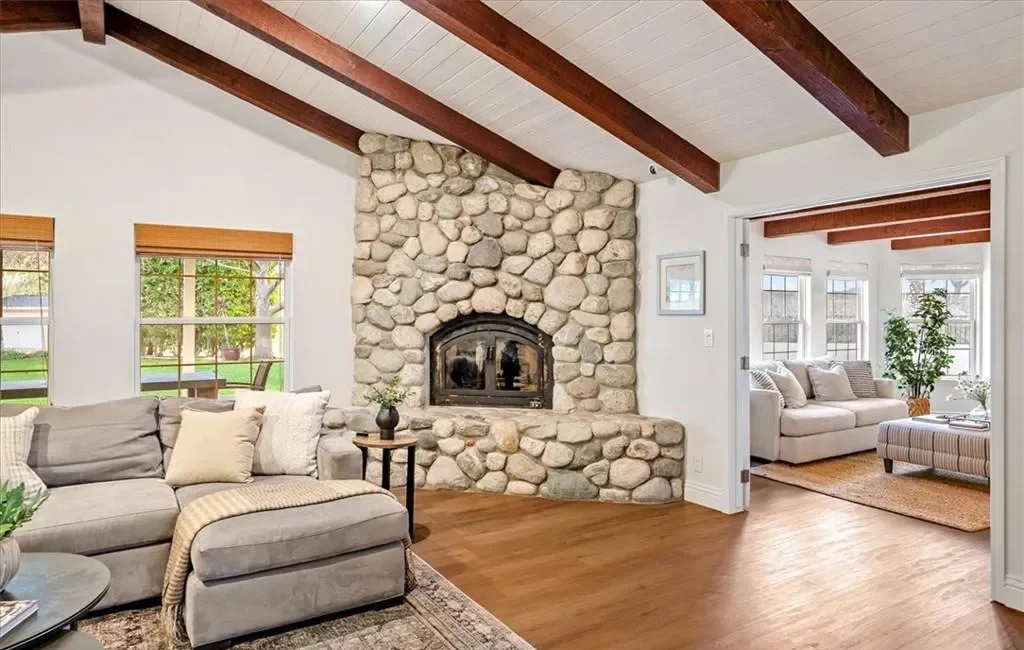Our care team is composed of individuals who are licensed and experienced in treating people with mental health disorders. Each one is passionate about their work and knows how to deliver structured and effective treatment that helps people rise above their poor mental health.
Understanding Depression: Signs, Symptoms & Treatment
Depression can make even the simplest tasks feel overwhelming—but you don’t have to face it alone. At Robles Ranch, we provide compassionate, residential care tailored to each individual’s needs. Let us help you rediscover hope, stability, and a path forward.
Depression
Depression can make even the simplest tasks feel overwhelming—but you don’t have to face it alone. At Robles Ranch, we provide compassionate, residential care tailored to each individual’s needs. Let us help you rediscover hope, stability, and a path forward.
At Robles Ranch, we know that depression doesn’t always look like sadness. Sometimes, it’s smiling when you’re breaking inside. Sometimes, it’s going through the motions, trying to keep everything together, while feeling completely disconnected from yourself.
Located in the quiet hills of Paso Robles, Robles Ranch offers a small, retreat-style mental health program where people experiencing depression can find real rest, expert care, and the space to heal. Whether you’ve struggled for years or you’re just beginning to wonder if something deeper is going on, you are not alone, and there is a way forward.
If you’re ready to feel like yourself again—or even meet yourself for the first time—we’re here to walk that path with you. Reach out today and learn how Robles Ranch can support your healing journey.
What is Depression?
Depression is more than just feeling sad or having a bad day. It’s a clinically recognized mental disorder and mood disorder that affects the way you think, feel, and function on a daily basis. Also known as major depressive disorder (MDD), it impacts brain chemistry, often involving imbalances in neurotransmitters like serotonin, dopamine, and norepinephrine, which play key roles in mood regulation, energy, motivation, and sleep.
Depression can manifest emotionally, physically, and cognitively. It might show up as sadness, numbness, irritability, hopelessness, or deep exhaustion. It can affect your sleep, appetite, concentration, memory, and ability to enjoy life. For many, it also involves somatic symptoms like chronic pain or gastrointestinal issues without a clear medical cause.
It’s important to understand that depression is not a weakness or character flaw—it’s a medical condition that can be diagnosed and treated. Left unaddressed, it can interfere with relationships, work, and daily responsibilities. But with the right support, it is also highly treatable, and many people go on to lead healthy, fulfilling lives.
At Robles Ranch, we approach depression with both clinical expertise and deep compassion. We want to understand your full story—what you’ve been through, how you’ve been coping, and what you need to begin healing in a way that’s truly sustainable.
Do I Have Depression?
Depression is a mental disorder that affects everyone differently, and it doesn’t always look the way people expect. Some individuals withdraw completely, while others keep showing up for work, smiling in photos, and checking every box, all while quietly unraveling inside. The signs can be subtle or overwhelming, physical or emotional, loud or completely invisible.
While a formal diagnosis requires a clinical assessment, recognizing the symptoms early can be the first step toward getting help. If you’ve been experiencing several of the symptoms below for more than two weeks—or if they’ve begun to impact your ability to function—it may be time to consider professional support.
Take Our Free Depression Test Today
Signs and Symptoms of Depression
- Persistent feelings of sadness, emptiness, or hopelessness
- Loss of interest in activities you once enjoyed
- Changes in appetite or weight
- Sleep disturbances (sleeping too much or too little)
- Fatigue or lack of energy
- Difficulty concentrating or making decisions
- Feelings of guilt, worthlessness, or shame
- Physical aches and pains with no clear cause
- Thoughts of death or suicide
Types of Depression
There are many forms of depression, and each presents differently depending on a person’s life experiences, neurobiology, and environment. Understanding which type you’re experiencing can guide the most effective path toward healing. At Robles Ranch, we work with you to identify not just the label—but the full story behind your symptoms—so your care plan feels aligned, intentional, and supportive.
Major Depressive Disorder (MDD)
Also known as clinical depression, MDD is marked by persistent and intense symptoms that interfere with daily life. People with MDD often feel overwhelmingly sad, empty, or numb most of the day, nearly every day, for at least two weeks or longer. It’s common to experience difficulty sleeping, changes in appetite, hopelessness, fatigue, and a lack of interest in things that once brought joy.
MDD can be completely debilitating, but with the right treatment and environment, most people can experience significant relief and regain a sense of purpose and energy.
Persistent Depressive Disorder (Dysthymia)
This form of depression is chronic and long-lasting, often lingering for two years or more. While the symptoms may not be as intense as those of MDD, their ongoing nature can be draining. People with dysthymia may describe themselves as always feeling “low,” “off,” or emotionally flat, often with fatigue, low motivation, self-doubt, and difficulty feeling joy.
Because it becomes such a constant presence, dysthymia is sometimes overlooked or dismissed as personality, but it is treatable, and change is absolutely possible.
Seasonal Affective Disorder (SAD)
SAD is a type of depression that occurs in a seasonal pattern, usually during the darker months of fall and winter. As daylight hours shrink, people may experience increased fatigue, difficulty concentrating, low mood, irritability, and social withdrawal. SAD often resolves in the spring or summer, but can significantly impact functioning during colder months.
Light therapy, vitamin D supplementation, and a consistent routine are often part of treatment, but in residential care, we also address underlying vulnerabilities that may make seasonal shifts feel more intense.
Postpartum Depression
More than just the “baby blues,” postpartum depression is a serious and sometimes overwhelming condition that affects some people after childbirth. It may include symptoms of sadness, anxiety, anger, difficulty bonding with the baby, changes in sleep and appetite, and intrusive thoughts. It can happen to anyone—regardless of how wanted or loved the baby is—and it is not a reflection of parental ability or love.
With compassionate care, proper therapy, and rest, recovery is absolutely within reach. Many people who receive support during this time go on to feel more connected to themselves and their children than ever before.
Bipolar Depression
People with bipolar disorder experience alternating periods of depression and mania (or hypomania). During depressive episodes, symptoms closely mirror those of MDD: hopelessness, fatigue, low motivation, and loss of interest. However, the presence of manic or hypomanic episodes—periods of increased energy, impulsivity, or elevated mood—sets this condition apart and makes accurate diagnosis essential.
At Robles Ranch, we recognize the importance of proper evaluation and treatment planning, as medications and therapeutic approaches for bipolar depression differ significantly from those used to treat unipolar depression.
Situational Depression
Also known as adjustment disorder with depressed mood, this type of depression is triggered by a specific life event or stressor, such as grief, job loss, divorce, or trauma. While it may not meet the clinical criteria for MDD, situational depression can feel just as heavy and disruptive.
Without support, this type of depression can become more entrenched over time. Our treatment approach helps individuals process the event, build resilience, and move forward with clarity and renewed strength.
Causes of Depression
There’s no single cause of depression. It’s often the result of a combination of biological, psychological, and environmental factors. No matter the cause, depression is treatable, and healing is possible.
Some common contributors include:
- Genetics: A family history of depression may increase your risk
- Brain chemistry: Imbalances in neurotransmitters like serotonin and dopamine
- Life events: Trauma, abuse, grief, or major transitions
- Medical conditions: Chronic illness, hormonal changes, or neurological disorders
- Substance use: Alcohol or drug misuse can contribute to or worsen symptoms
- Stress: Prolonged exposure to stress or burnout can deplete your emotional reserves
How Is Depression Treated?
There’s no one-size-fits-all solution to depression. Effective treatment involves understanding the root causes and developing a plan that supports the whole person—mentally, emotionally, physically, and spiritually. We’re here to help you find the combination that works best for you.
At Robles Ranch, we specialize in residential treatment for depression, offering a highly personalized, integrative approach to care.
Other common treatment options include:
- Individual therapy (such as CBT, psychodynamic, or trauma-focused therapy)
- Group therapy and support groups
- Medication management
- Holistic approaches, including meditation, biosound therapy, animal-assisted therapy (AAT), and nature-based therapy
- Lifestyle interventions, such as nutrition, movement, and sleep hygiene support
Recommended: 5 Signs Your Antidepressant Dose Is Too Low
What Does Depression Feel Like?
Depression often feels invisible to others but impossible to escape from within.
It can feel like:
- Moving through quicksand while everyone else walks on solid ground
- Watching life happen around you without feeling part of it
- Feeling exhausted from doing nothing, or everything
- Struggling to find meaning, even in things you once loved
- Smiling on the outside while crumbling on the inside
At Robles Ranch, we see past the surface. We create space for you to be honest about what you’re going through without fear, shame, or judgment. Your feelings make sense—and they deserve to be met with understanding, not dismissal.
How We Treat Depression at Robles Ranch
Depression treatment at Robles Ranch is rooted in the belief that healing is not just possible—it’s personal. We don’t follow cookie-cutter protocols or rigid routines. Instead, we meet you exactly where you are, listen closely, and tailor your care in a way that supports your full being—emotionally, mentally, physically, and spiritually.
We combine clinical expertise with holistic practices, offering a well-rounded experience that goes beyond symptom management and into real, lasting transformation.
Holistic & Clinical Integration
At Robles Ranch, evidence-based therapies meet experiential healing. You’ll participate in individual and group sessions led by licensed therapists trained in modalities like CBT, trauma-informed care, and psychodynamic therapy. But that’s just the beginning.
Our clients also engage in sound healing, inner child work, guided meditation, breathwork, and movement-based therapies that help process emotion through the body. We believe depression lives not only in the mind but also in the nervous system, and true recovery requires addressing both.
This layered, integrative approach helps clients reconnect with themselves in ways that talk therapy alone can’t always reach.
Small, Intimate Setting
We intentionally serve no more than six clients at a time. That’s not a marketing gimmick—it’s a core part of how we create real healing. A smaller census means you’ll never feel overlooked, rushed, or like just another name on a clipboard.
Our staff has the time and space to really get to know you, not just your symptoms, but your story, your strengths, and your goals. The result is a deeply personalized experience where your voice is central and your progress is supported from day one.
Connection To Nature & Animals
Depression often disconnects us from the world around us. At Robles Ranch, we use nature and animal connection as powerful tools to rebuild that sense of belonging and presence.
Our Paso Robles property offers scenic trails, quiet outdoor spaces, and daily interactions with our goats and pigs—a favorite part of many clients’ experience. Research supports what we see every day: time in nature and with animals helps lower cortisol levels, elevate mood, and foster moments of peace and joy.
These simple, grounding interactions often become catalysts for deeper emotional breakthroughs.
Personalized Treatment Plans
No two people experience depression the same way, and we don’t treat it that way. From your first day at Robles Ranch, your care team will work with you to design a treatment plan that’s entirely your own.
We take into account your mental health history, past treatment experiences, life circumstances, and personal goals. Whether you need trauma-informed care, support through grief, help navigating life transitions, or simply a space to rest and recalibrate, your treatment plan will reflect your unique journey.
Because when care is personal, healing becomes possible.
Areas We Serve
Although Robles Ranch is located in Paso Robles, our residential depression treatment program welcomes individuals from across California and beyond. We understand the need for a quiet, restorative setting, and many of our clients travel to us to get exactly that.
We proudly serve clients from:
If you’re in California and looking for a residential depression program, we’re here for you. Our team can assist with admissions, travel planning, and everything in between.
Meet Our Expert Care Team
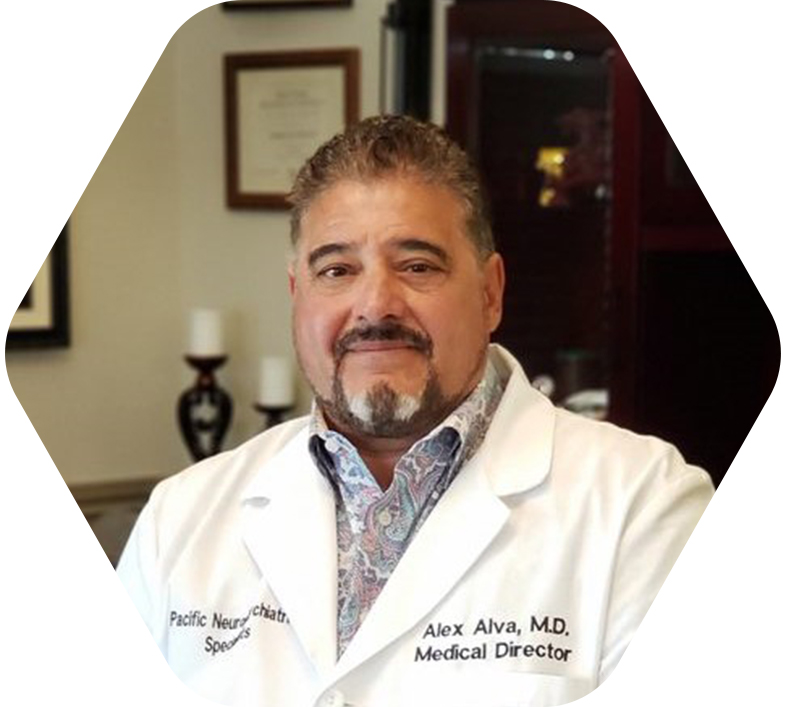
Alejandro Alva, MD
Medical Director
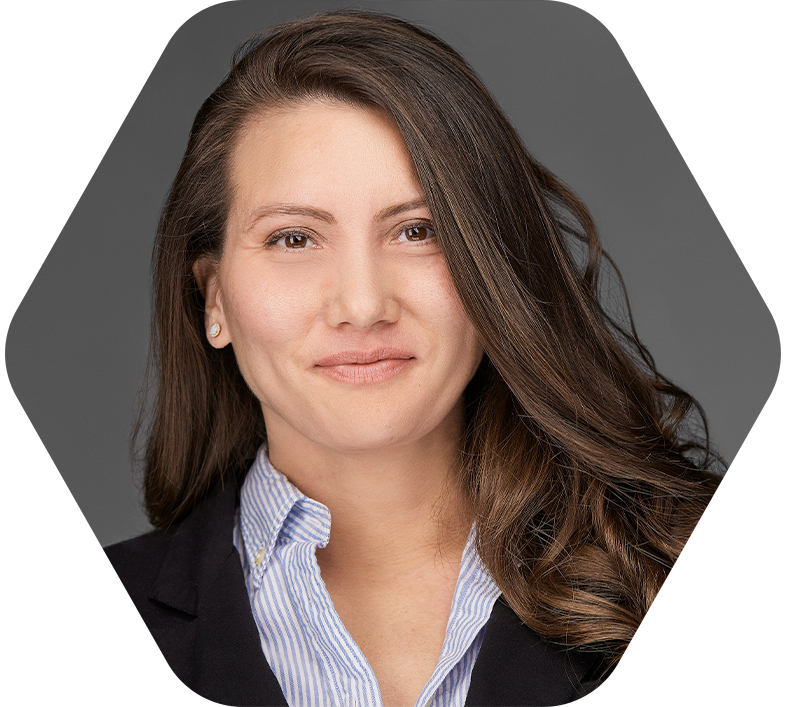
Jennifer Sebastian, PA-C
Certified Physician Assistant

Deborah Du, PA-C
Certified Physician Assistant
Begin Mental Health Treatment Today
If you or a loved one is struggling with mental health issues and seeking a balanced approach to recovery, our mental health treatment programs in Northern California may be the right choice.
Begin Depression Treatment in California Today
You don’t have to carry the weight of depression on your own. Whether you’re feeling numb, overwhelmed, or completely lost, there is hope—and there is help.
Robles Ranch offers a warm, quiet space in Paso Robles where you can slow down, get support, and reconnect with the part of you that still wants to heal. Our residential depression program is small by design and deeply personalized.
Ready to take the first step? Reach out to our team today to learn more about how we can support your journey toward healing. You are not broken. You are not alone. And you are worthy of feeling better.
Begin Depression Treatment in California Today
You don’t have to carry the weight of depression on your own. Whether you’re feeling numb, overwhelmed, or completely lost, there is hope—and there is help.
Robles Ranch offers a warm, quiet space in Paso Robles where you can slow down, get support, and reconnect with the part of you that still wants to heal. Our residential depression program is small by design and deeply personalized.
Ready to take the first step? Reach out to our team today to learn more about how we can support your journey toward healing. You are not broken. You are not alone. And you are worthy of feeling better.
Mental Health Programs

Tour Our Program
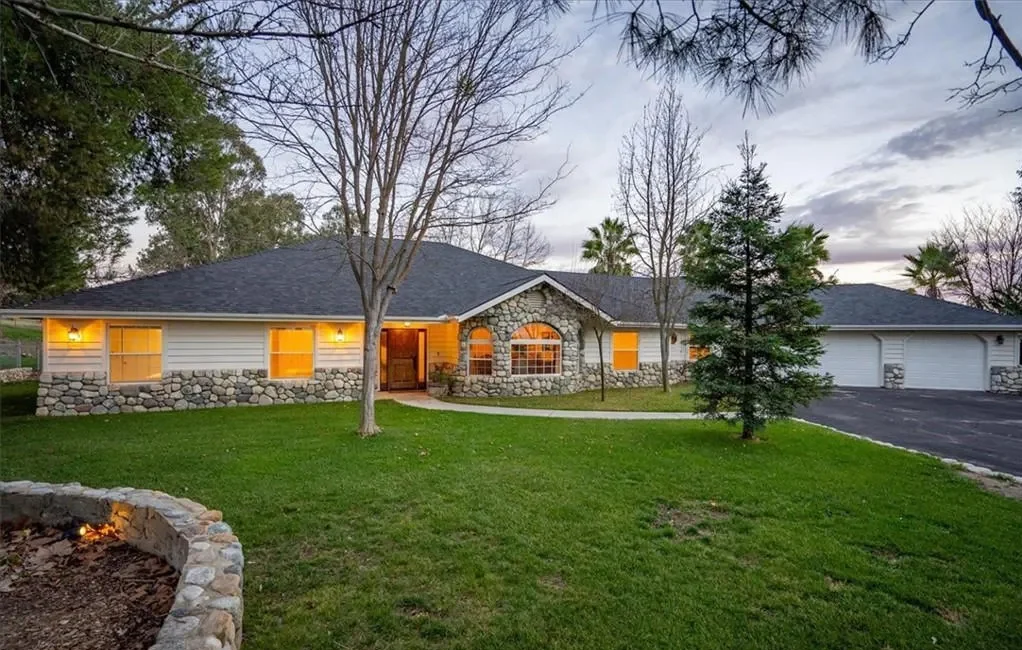
We Help Clients Make Their Lives Better
Trustindex verifies that the original source of the review is Google. Will, and the whole team of pysch techs are experienced and compassionate. I have been to the facility a few times and met their whole team, love what they are doing for the community! I wish there were 8 more facilities like this in the area!!Trustindex verifies that the original source of the review is Google. This beautiful serene retreat is everything you need. Settled in the beautiful town of Paso Robles makes it even more special. The staff was another plus here they were awesome!!Trustindex verifies that the original source of the review is Google. Would definitely recommend Robles Ranch!! Cheree & her team are awesome.

